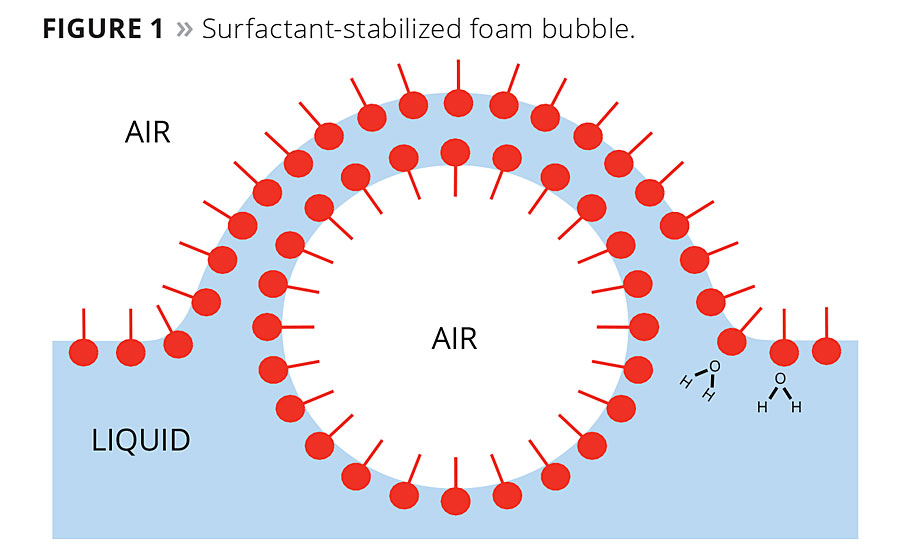Effective Use of Defoamers in the Pharmaceutical Manufacturing Process
The Duty of Defoamers in Enhancing Product High Quality and Performance
Defoamers offer as crucial additives that minimize this problem, guaranteeing smoother production operations while improving the visual and functional characteristics of the final products. The selection of the suitable defoamer can be essential to achieving ideal outcomes, elevating vital questions regarding solution compatibility and efficiency metrics that merit further expedition.
Comprehending Defoamers
Understanding the role of defoamers is essential for preserving item high quality across various markets. Defoamers are chemical ingredients created to protect against the development and minimize of foam in fluid systems, which can detrimentally influence procedures such as blending, filling up, and surface stress. Foaming can result in inefficiencies, product problems, and jeopardized visual appeal, making defoamers an important element in producing procedures.
In commercial applications, defoamers assist to boost product consistency and security. For instance, in the paint and finishings market, foam can hinder the application procedure and the last surface. In a similar way, in food and beverage production, excessive foam can prevent bottling and product packaging performance (defoamers). The efficient usage of defoamers not only makes certain smoother manufacturing processes however additionally adds to exceptional product efficiency.
Furthermore, the option and formula of a defoamer must straighten with certain application needs, such as compatibility with other active ingredients, efficiency under differing temperature and pH problems, and prospective governing restrictions. Inevitably, understanding defoamers' features and their significance in numerous formulas is essential for maximizing production and making certain the greatest top quality final product.
Sorts Of Defoamers
Defoamers can be classified into numerous types based on their make-up and mechanism of activity. The key types include silicone-based, non-silicone natural, and inorganic defoamers.
Silicone-based defoamers are among one of the most reliable, mostly due to their capability to spread out swiftly on the liquid surface area and interfere with foam formation. Their unique chemical structure enables premium security, making them suitable for high-temperature applications and environments with varying pH levels.
Non-silicone organic defoamers, commonly made up of fatty acids or all-natural oils, are valued for their biodegradability and reduced poisoning. These are typically used in food and drink applications where security and environmental influence are critical.
Not natural defoamers, which include compounds like talc or calcium carbonate, act by boosting the density of the liquid, consequently lowering foam security. They are often utilized in industrial procedures where compatibility with various other products is not an issue.
Each kind of defoamer has distinct benefits and limitations, permitting for tailored options depending upon the specific lathering problems come across in different applications. Understanding these distinctions is critical for enhancing efficiency and attaining desired product high quality.
Applications Throughout Industries
Countless markets utilize defoamers to boost product high quality and functional effectiveness. In the food and beverage sector, defoamers are crucial in processes such as developing and milk manufacturing to stop foam development, which can result in inefficiencies and item incongruity. By controlling foam, producers can make sure much better return and an extra consistent item.
In the pharmaceutical market, defoamers play a crucial function in the formula of liquid medications, where extreme foam can impede blending and exact dosing. Their use assists maintain the integrity of the solutions and assists in smoother production procedures.
The paint and layers market likewise depends on defoamers to boost the performance of products during application. By reducing foam, these ingredients guarantee a smoother surface and enhance the visual top qualities of the end product.

Advantages of Utilizing Defoamers
While the application of defoamers differs across sectors, their benefits consistently enhance product top quality and procedure performance. One significant advantage is the reduction of foam development during producing processes, which can otherwise lead to production hold-ups and incongruities in item top quality. By decreasing foam, defoamers make it possible for a smoother circulation of products, promoting extra reliable procedures and lowering the chance of tools breakdowns.
Furthermore, making use of defoamers can boost the look and structure of end products. In fields such as layers, paints, and food handling, too much foam can jeopardize the visual looks and general top quality, while the ideal defoamer application makes certain a consistent finish and preferable characteristics. Defoamers can add to set you back savings by lowering waste during manufacturing and enhancing the usage of raw materials.

Choosing the Right Defoamer
Choosing the appropriate defoamer is important for enhancing production processes and making certain item quality. The choice of defoamer influences not just the performance of foam control but also the total performance qualities of the end product. Variables to consider include the sort of application, the chemistry of the formula, and the environmental problems under which the product will be utilized.
Various industries might call for certain defoamer types, such as silicone-based, natural, or polymeric defoamers. Recognizing the compatibility of the defoamer with the primary components is vital to prevent damaging reactions that might jeopardize product stability. Additionally, the defoamer's why not look here effectiveness in numerous temperature levels and pH levels have to be reviewed to make sure consistent efficiency.
Evaluating the defoamer in small applications can offer valuable understandings into its efficiency and suitability. Consideration of governing compliance, specifically in food, pharmaceuticals, and cosmetics, is paramount in picking a defoamer. Eventually, an extensive assessment of these variables will certainly cause the choice of a defoamer that not only controls foam effectively visit however also boosts the high quality and efficiency of the final item.
Final Thought

Finally, defoamers are vital additives that substantially enhance product high quality and performance throughout different industries. By successfully decreasing foam development, these agents not just enhance operational efficiency however likewise add to the visual and useful integrity of products. The calculated option and application of defoamers bring about set you back financial savings, optimized resource use, and increased customer complete satisfaction. Generally, the relevance of defoamers in commercial procedures can not be overemphasized, as they play a vital role in accomplishing constant and high-quality results.
Frothing can lead to inefficiencies, item issues, and endangered aesthetic appeal, making defoamers an important component in manufacturing procedures.
